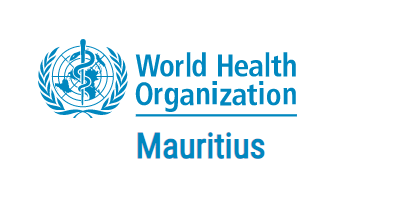Mauritius achieved another milestone in its quest to improving health and wellness of older people and promoting healthy ageing through training of a core team of trainers from multi-disciplinary background on integrated care for older people (ICOPE).
Over the past few decades, Mauritius has been experiencing a rapid ageing of its population. The percentage of people aged 60 years and above was 9% in the year 2000, 18.7% in the year 2021 and the figure is projected to increase to 36.5% in the year 2061. The “oldest, old people”, the population over 80 years, is projected to increase more than twofold by 2061, adding pressure to the health system and requiring adaptation of health services to the specific needs of elders.
In June 2022, a national strategy to proactively respond to the health needs of older people, the integrated care for older people (ICOPE) strategy and action plan 2022-2026 was developed with the support of WHO and launched by the Prime Minister in March 2023. The training of a core team of trainers was therefore a step forward in the implementation of this important strategy.
“It is the Government’s vision to effortlessly diagnose the health issues of the elderly at an early stage and allow them to live a better life”, said the Health Minister, the Hon. Dr Jagutpal, who also added, “my Ministry will leave no stone unturned to promote better medical assistance and uplift the quality of health care for our elderly persons who have worked very hard and contributed to the development of the country.
The training of trainers on ICOPE was conducted by the Ministry of Health and Wellness (MOHW), the Ministry of Social Integration, Social Security and National Solidarity (MSISSNS) and the World Health Organization (WHO). Senior Citizens Council, the largest association of senior citizens in Mauritius; the Alzheimer’s and Dementia Association of Mauritius, and the Club Le Flamboyant (the association of retired workers from the Civil Service) have been involved in the adaptation and dissemination of ICOPE in Mauritius and in this training.
Health and social workers comprised medical officers (specialists in internal medicine and geriatricians), nurses, social workers, representatives of NGOs and academia, gained knowledge and skills on ICOPE aiming to prevent, protect and reduce care dependency and promoting healthy ageing.
The participants received therefore in-depth knowledge and skills on the WHO recommended pathways for timely screening of physical and mental decline in the elderly persons to reduce their dependency and promote effective and timely care. The pathways provide the framework to screen and detect issues related to cognition, mental health, vision, hearing, mobility, social care and nutrition.
This training also offered a unique opportunity to raise awareness on sexual health in older persons in line with the “National Sexual and Reproductive Health Implementation Plan 2022-2027” recently published by Mauritius.
Participants were enthusiastic in experiencing the “inspirational tours” sessions where a team of multidisciplinary health and social workers rotated among three stations under the guidance of the facilitators to learn and contextualize the WHO ICOPE care pathways to the Mauritian context. The participants are expected to play a key role in further cascading the training to other health and non-health workers involved in delivery of ICOPE at primary level care level.
A National ICOPE Steering Committee and Technical ICOPE Committees and Sub-Committees have been established for the adaptation and dissemination of ICOPE at the level of the MOHW. Further, a Geriatric Healthcare Unit has been set up at the level of the Ministry of Health and Wellness to support the adaptation and dissemination of the ICOPE screening tools. This unit is playing a primary role in the initial screening of older persons in Mauritius and has started screening. An update of the laws and regulations against elders’ abuse and ageism is also under consideration.
At the end of the training, the trainers with the support of the facilitators identified the critical elements for the implementation and scaling-up of the ICOPE approach as follows:
A robust training plan is to be developed to guarantee the sustainability of ICOPE;
Stronger inter-ministerial collaboration and coordination on ICOPE;
Further adaptation of the ICOPE care pathways to Mauritius reality so that it can be owned and fully embrace by health professionals as well as the elderly population and so that it can focalize on the central role of the primary health care in ensuring accessible prevention, promotion, screening and integrated follow-up of elderly patients;
A robust monitoring and evaluation plan to assess the ICOPE implementation; and
Strong, coherent, continued awareness raising among older people about the risks for their physical and mental capacities and their wellness .
“WHO will continue working alongside all key ministries, NGO and the civil society in Mauritius to facilitate the implementation of this very important strategy and ensure healthy ageing becomes soon a reality of the Mauritian society” concluded the WHO Representative, Dr A. Ancia.
Distributed by APO Group on behalf of World Health Organization (WHO) – Mauritius.
